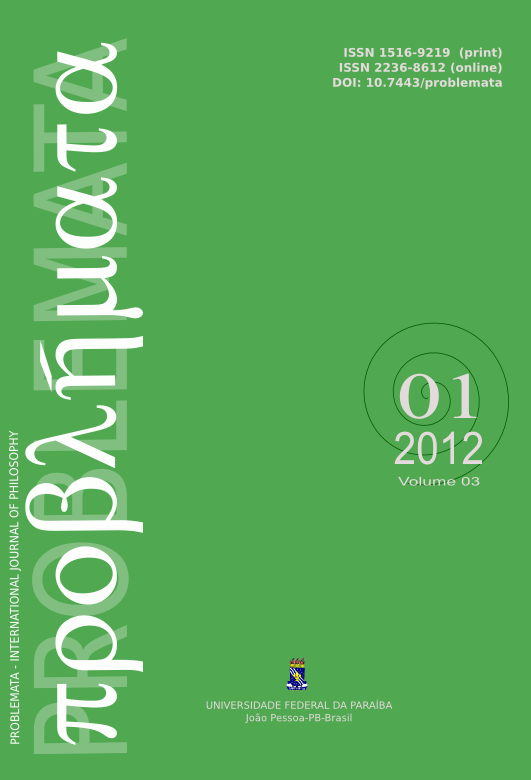WHAT FOUNDS THE SOCIAL BOND? A study on the law of language<a href="http://dx.doi.org/10.7443/problemata.v3i1.12210"><i> <b>[doi: 10.7443/problemata.v3i1.12210]</b></i></a>
DOI:
https://doi.org/10.7443/problemata.v3i1.12210Keywords:
Hermenêutica, Linguagem, Direito de GentesAbstract
This article seeks to approach the issue of language of the question by the social bond. It recognizes that this can only be possible based on a conception of language that is not hostage to the metaphysical tradition. In these terms, the paper crosses two distinct hermeneutic horizons, namely, the notion of agreement, which has its basis in the problem of language, and the concept of ius gentium, which, though of Roman origin, was reworked in the second scholasticism, giving rise to International Law. These two concepts, however, will collide directly with the ideas of human nature and social contract, so we seek to discuss them from their foundations in order to point their embarrassment in relation to the radical difference.Downloads
Download data is not yet available.
Downloads
Published
2012-05-29
Issue
Section
Papers
License
Authors who publish with this journal agree to the following terms:
- Authors retain copyright and grant the journal right of first publication with the work simultaneously licensed under a Creative Commons Attribution License that allows others to share the work with an acknowledgement of the work's authorship and initial publication in this journal.
- Authors are able to enter into separate, additional contractual arrangements for the non-exclusive distribution of the journal's published version of the work (e.g., post it to an institutional repository or publish it in a book), with an acknowledgement of its initial publication in this journal.
-
- Authors are permitted and encouraged to post their work online (e.g., in institutional repositories or on their website) prior to and during the submission process, as it can lead to productive exchanges, as well as earlier and greater citation of published work (See The Effect of Open Access).





